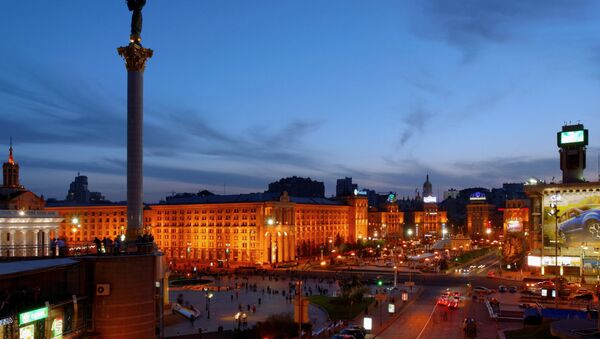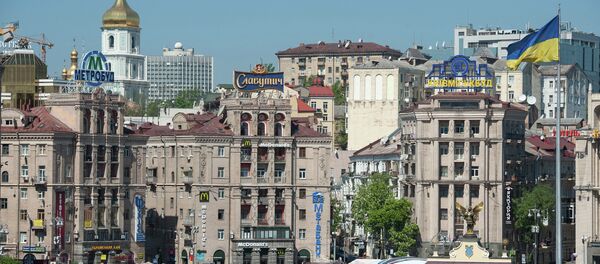On Wednesday, Abromavičius, a Western-trained minister, resigned, saying he had been unable to beat back corruption.
His resignation is another signal to Ukraine’s Western partners that Kiev may not be able to implement the reforms.
"The resignation fed growing concerns from Ukraine’s allies that the country remains stuck in unscrupulous dealmaking almost two years after pro-Western protesters overthrew President Viktor Yanukovych, whom they condemned as corrupt," the article read.
The minister said that he had come under pressure from senior allies of the country’s president to appoint unqualified deputies to state-owned companies in the most lucrative industries in Ukraine.
Abromavičius, who was born in Lithuania, was one of a small team of foreign specialists whom President Petro Poroshenko invited to join the government in 2014. He was expected to contribute to fighting corruption in the government, as a condition for further loans for Ukraine.
Despite Kiev having repeatedly pledged its commitment to carry out structural reforms, the country's deeply corrupt political system has remained untouched, Joerg Forbrig, Central and Eastern Europe expert at the German Marshall Fund of the United States, wrote.
"Ukraine's fledgling democracy edged closer to dismembering itself this week, as one of the most reform-minded members of the government stepped down. In his resignation letter, Economy Minister Aivaras Abromavicius accused old political elites of systematically blocking much-needed reforms and paralyzing the fight against rampant corruption; and singled out a close confidant of President Petro Poroshenko as one of the main culprits," the expert noted in his article for Politico.
According to Forbig, Ukraine can still escape this political suicide, but its time is running out.
Speaking to Russian newspaper Svobodnaya Pressa, Dmitri Zhuravlev, the general director of the Institute of Regional Problems, underscored that Abromavičius’ resignation is an indication of Western political elites’ disappointment with the post-Maidan Ukraine.
"Foreigners do not simply come to Ukraine; they are sent there. Who sends them is another story. But it is hard to imagine that Abromavicius sat in Lithuania thinking about how to get a government post in Ukraine. If he came, it means someone invited him. And if he has decided to leave, it means that 'that someone' is extremely dissatisfied with what is happening in the country," he said.





